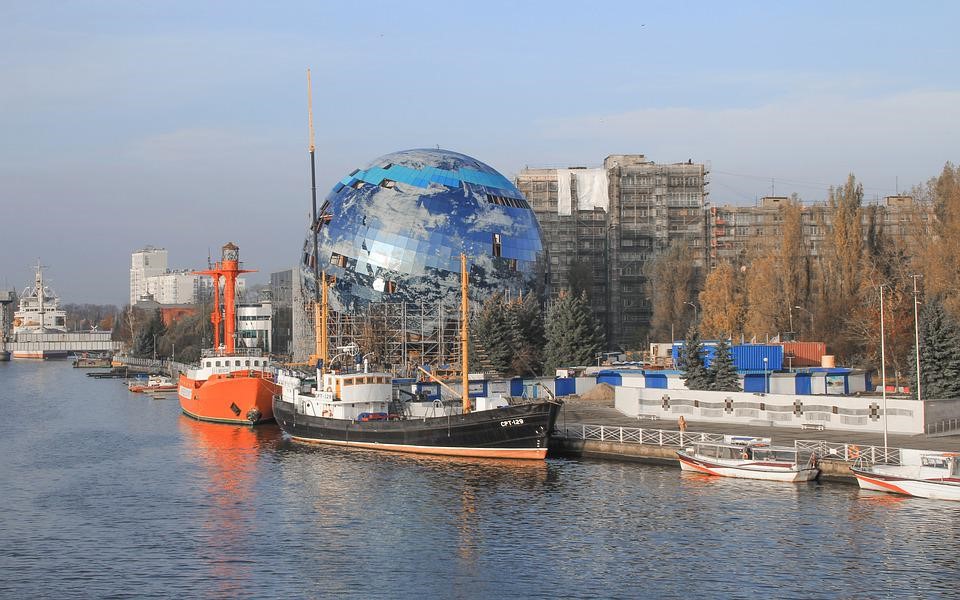What was once expected to be a short war in Ukraine has stretched from winter into summer and shows no signs of shutting it down as we approach fall. Now Putin is growing more concerned over a separate Russian enclave, Kaliningrad, that was separated from the country after the dissolution of Soviet Union in 1991. There are two aspects that are particularly critical: transportation links between Kaliningrad and Russia proper and changes in the Kaliningrad population’s attitudes because of their neighbors’ actions. The “populace [are] less like their nominally Russian ethnic counterparts and potentially less loyal” to Russia, according to Paul Goble of the Jamestown Foundation. The area is separated from the Russian Federation by Lithuania and Poland.
Recently Lithuania imposed and then removed a ban on the movement of EU sanctioned goods between Russia and Kaliningrad. Last year a NATO exercise appeared to practice the taking of Kaliningrad in a war. For Putin, this represents a clear and long-term threat to his country as he continues to face regionalist sentiment in various regions of Russia. Renamed Kaliningrad by Joseph Stalin at the end of World War II the region has lingering negative feelings about ethnic Russians, Ukrainians, and Belarusians brought into the enclave as the original residents , “the people of Koenigsberg,” view themselves as distinct from other groups.
“Some have even talked about becoming ‘the fourth Baltic republic’ and formed a political party to promote that outcome,” says Goble, and “such feelings are further intensified by the Kaliningrad population’s far more frequent visits to Lithuania and Poland, both EU and NATO members, than to Russia proper, as well as by earlier efforts on the part of Kaliningrad officials to promote tourism, playing up German, Lithuanian and Polish links in the past and present.” Since last November Putin has cracked down on even the slightest hints of separatism and, in particular, against the German influence that remains in the region.
Lithuanian influence in the region is targeted due to the impact of Putin’s “special military operation” in Ukraine and its recent moves to restrict the flow of goods to the exclave. Goble calls the Kremlin’s action “both harsh and possibly dangerous given the reactions of Kaliningrad residents, who had been loyal to Moscow up to now—even if these moves are still flying under the radar in the West.” Since early July, Russian officials have gone after Lithuanian cultural institutions in Kaliningrad itself. It is viewed as an act of revenge against Vilnius’ failed attempt to impose a partial blockade on the region and to limit Lithuanian influence on Kaliningrad.
Last week, at the insistence of the Russian Ministry of Justice, officials closed the Association of Teachers of the Lithuanian Language in Kaliningrad. The group totaled about 20,000 ethnic Lithuanian. Putin’s political motivation was obvious as the activist association and has served as a base for teachers since 1995. The publication Lituanika.ru points out this week that its members are appalled because they care about their nation and about Kaliningrad and believe that the association has served both equally well. It raises questions concerning how far Putin will go to secure Kaliningrad.
Maksim Makarov, reports Goble, heads the Russian community in Kaliningrad Oblast. Earlier Makarov garnered attention for his fight against “Germanization,” saying the closing of the association was absolutely correct, if belated, because the group has been funded by Vilnius and has tried to organize opposition within Kaliningrad to Russia’s “special military operation” in Ukraine. At this point Russia is using propaganda to dissuade those in the enclave from dissociating themselves from Russia. Msocow’s mouth piece, Makarov calls the association “an LGBT organization” and “the chief structure of the special services of Lithuania on the territory of Kaliningrad Oblast.” There are other cases where Russia is interfering in Kaliningrad in recent weeks. A Lithuanian children’s ensemble was blocked from traveling to a festival in the Russian Federation and acts of vandalism have also been committed against Lithuanian statues and busts in various parts of the oblast simply because they represent “the wrong nationality.” No one is sure what will next happen in this campaign to defend “Russianness” in the enclave. “In the current environment… more attacks, both official and unofficial, on Lithuanian groups in Kaliningrad are probable in the coming days, a reflection of Kremlin fears that even folkloric groups can undermine the population’s Russian identity and its loyalty to Moscow,” according to Goble. Putin’s war may yet spread and not close to a conclusion.
Daria Novak served in the U.S. State Department
Photo: Kaliningrad museum (Pixabay)
